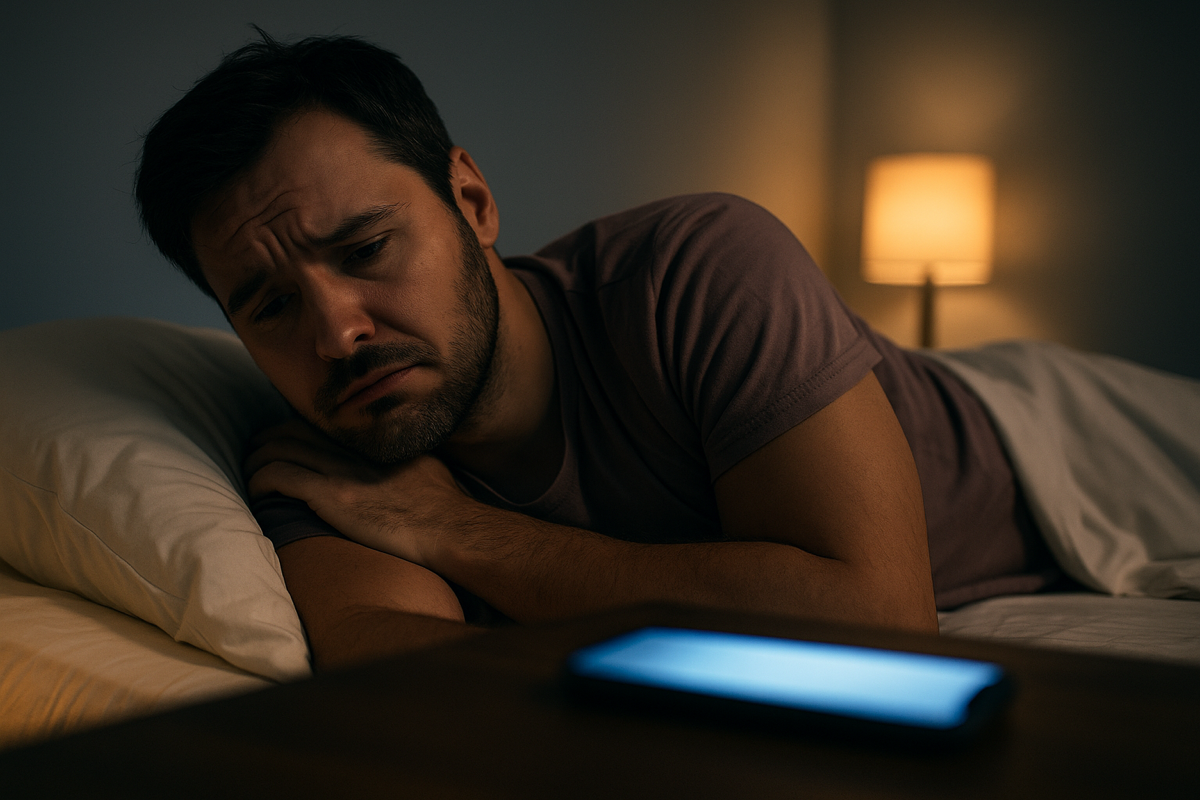Sleep and depression have a complicated relationship. Poor sleep can trigger depression, worsen symptoms, and make recovery feel impossible. At the same time, depression itself can disrupt sleep patterns, leaving you tired, overwhelmed, and stuck in a frustrating cycle.
The good news: once you understand why this happens, you can take back control of your sleep and improve your mood more effectively.
Let’s break it down.
Why Sleep and Depression Are so Closely Linked
Sleep isn’t just rest for your body – it’s essential maintenance for your brain. Every night, your mind performs emotional “clean-up,” stress regulation, memory processing, and hormonal balancing.
When sleep is short, fragmented, or low-quality, those systems break down.
1. Your Brain Can’t Regulate Emotions Properly
Lack of sleep makes the emotional center of the brain (the amygdala) more reactive.
That means:
- Mood swings
- Irritability
- Feeling overwhelmed by small problems
For someone with depression, this emotional “overreaction” makes symptoms noticeably more intense.
2. Low Sleep Disrupts Serotonin and Dopamine
These two neurotransmitters regulate:
- Mood
- Motivation
- Sense of reward
- Calmness
Poor sleep lowers dopamine and serotonin production, the very chemicals that depression already affects.
3. Chronic Sleep Loss Raises Inflammation
Research shows that long-term poor sleep triggers inflammation in the brain.
Inflammation has been directly linked to:
- Depressive symptoms
- Fatigue
- Cognitive fog
This is why people with insomnia often feel physically and mentally drained the next day.
4. Sleep Issues Increase Negative Thinking
When you’re exhausted, your brain defaults to “survival mode,” which often looks like:
- Catastrophizing
- Hopeless thoughts
- Feeling less capable
For someone already battling depression, this can deepen the condition.
Depression Can Also Ruin Your Sleep
It goes both ways. Depression often causes:
– Insomnia
Difficulty falling or staying asleep – the most common issue.
– Early-Morning Awakening
Waking at 3-5am and unable to fall back asleep.
– Oversleeping (Hypersomnia)
Feeling tired all day and sleeping excessively.
– Restless Sleep
Even after a full night, the rest feels “light” and non-restorative.
How to Break the Sleep-Depression Cycle
1. Keep a Consistent Sleep-Wake Schedule
Your brain loves routine.
Wake up at the same time every day (yes, even weekends). This single habit resets your circadian rhythm.
2. Protect Your Wind-Down Time
Your brain needs a transition period before sleep.
Try:
- Warm shower
- Light stretching
- Reading
- No stressful conversations or work
3. Limit Screens (This One Makes a Huge Difference)
Blue light tricks your brain into thinking it’s daytime.
Tips:
- Put your phone away 1 hour before bed
- Use warm/dark filters
- Keep your bedroom screen-free if possible
4. Avoid “Depression Naps”
Long naps (over 30 minutes) disrupt sleep cycles and worsen nighttime insomnia.
If you’re exhausted:
- Set a 15-20 minute timer
- Keep the nap before 2pm
5. Prioritize Morning Sunlight
Getting 10–20 minutes of sunlight early in the day boosts mood and regulates sleep hormones like melatonin and cortisol.
6. Consider Supportive Supplements (If Approved by Your Provider)
Common options:
- Magnesium glycinate
- L-theanine
- Melatonin (short-term use)
- Omega-3s
Supplements are not a cure, but they can help restore balance.
7. Talk to a Provider if Sleep Problems Persist
You may be dealing with:
- Sleep apnea
- Restless leg syndrome
- Major depressive disorder
- Anxiety-related insomnia
Addressing the underlying cause leads to much better sleep and mood.
The Bottom Line
Poor sleep doesn’t just make you tired – it worsens depression in a deep, biological way.
But the cycle is breakable.
By building healthy sleep habits and working with a provider, you can:
- Improve your mood
- Reduce emotional reactivity
- Increase daytime energy
- Feel more like yourself again
Better sleep truly is one of the most powerful (and underrated) tools for managing depression.

